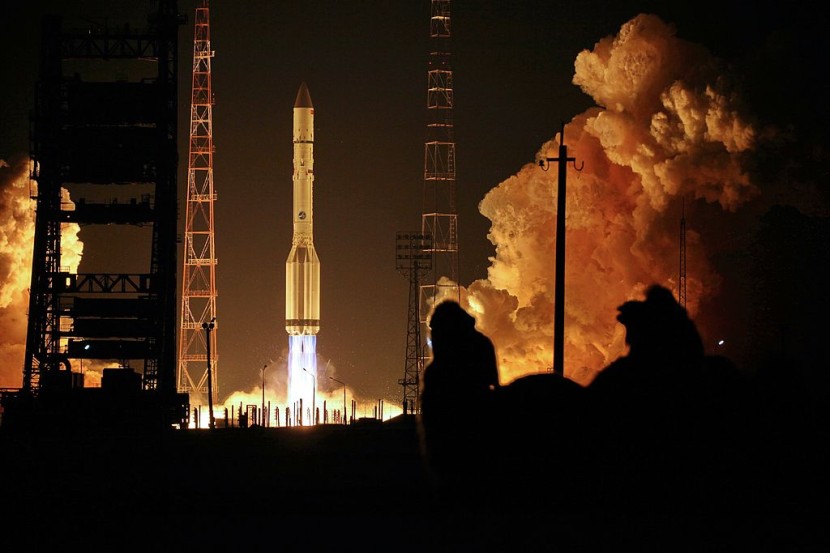
Turkey is working on establishing its first touch with the moon as the globe commemorates the 52nd anniversary of mankind's first step on a celestial body other than planet Earth. According to a Turkish Space Agency (TUA) expert, Turkey aspires to reach the moon with domestically manufactured spacecraft and an indigenously developed hybrid engine.
On the 100th anniversary of the republic's founding, Turkey intends to launch an unmanned spacecraft to the moon in 2023 as part of its National Space Program. Turkey's 10-year vision, plans, targets, and initiatives on space policy were unveiled on February 9 as part of the country's National Space Program, as per Middle East Monitor.
Turkey aims to reach moon with unmanned spacecraft
The installation of the ground tracking station for the moon mission has begun, according to Prof. Dr. Ibrahim Kucuk, head of TUA's Space Sciences Department, who also stated that an antenna system with a diameter of 20 meters (66 feet) will be installed, which was also designed to be used for scientific purposes as a radio telescope. He went on to say that the agency is in regular communication with countries' space experts, particularly those in Asia and that TUA has established agreements with Kazakhstan, Hungary, Azerbaijan, Ukraine, and Pakistan.
Turkey conducted flight tests of a probe rocket system on Monday, which will be used in a crewless spacecraft that will be launched as part of the country's moon mission in 2023. The Probe Rocket System (SORS), which was developed using hybrid engine technology, was launched from northern Sinop province in a ceremony that included Industry and Technology Minister Mustafa Varank and other authorities.
Delta V, a state-backed research corporation that plays a key role in the national space program, created the system. The fire was a crucial step in Turkey's plan to complete the first leg of its moon mission in 2023 by sending a crewless spacecraft to perform a hard landing.
Per Daily Sabah, Delta V continues to make progress in its efforts to raise the rocket's altitude. With a larger tank, SORS will have more oxidizing capacity. The rocket will be able to reach altitudes much above 100 kilometers as a result of this.
Ground testing of the larger oxidizer tank is anticipated to begin in August, with launches scheduled for September. According to Delta V general manager Arif Karabeyolu, the SORS has one of the most sophisticated technologies in the world.
Read Also: Elon Musk's Starlink Expects To Provide Fast Internet to The Whole World by September
Turkish government plans to send second batch of rockets in 2028
The first fire test of the hybrid rocket engine, which is planned to be utilized in the 2023 moon mission, was completed by Turkey. It had also conducted a vertical firing test of the SORS' thrust system. The Turkish spacecraft will be launched into orbit with international collaboration as part of the lunar mission. Following that, it will be transported to the moon's surface by a hybrid engine developed by Delta V.
According to the road map, the government will send its rockets into orbit in the second stage in 2028, just as it did with the probe. In addition to sending Turkish astronauts to space for a research mission, the space road map calls for the development of globally viable satellite systems.
Dr. Cenk Kayhan of Kayseri Erciyes University's Astronomy and Space Sciences Department said there was a concern that Russian dominance would sweep the world after the launch of Sputnik 1. According to Kayhan, the Americans were shocked by the successive Sputnik rockets that were launched into space, as well as Russian Cosmonaut Yuri Gagarin's journey into space in 1961, and that under those circumstances, then-US President John F. Kennedy felt compelled to launch a grand space program.
When the Apollo project was begun, Kayhan stated that the US was far behind the Soviets. Americans couldn't even predict where spacecraft would land on the moon since the resolution of US telescopes was insufficient and that a vehicle to survey the moon should be constructed. Neil Armstrong and Buzz Aldrin were the first persons to walk on the moon on July 20, 1969, a fruit of their tireless efforts to complete the mission.
Dervisoglu emphasized the relevance of Turkey's membership in organizations such as the Asia-Pacific Space Cooperation Organization (APSCO), saying that collaborative efforts may be undertaken with nations like Indonesia and Pakistan; each of which has expertise in different sectors. Turkey joined the APSCO in 2006, which monitors space technology advancements and provides a platform for information transfer, Yenisafak reported.
Related Article: Chinese Rocket Expected To Fall Back to Earth This Weekend, Where Will the Debris Fall?
@YouTube
© 2026 HNGN, All rights reserved. Do not reproduce without permission.








